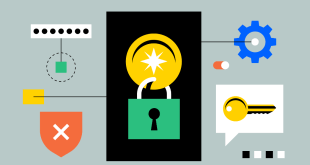In the ever-evolving digital landscape, online security remains a paramount concern. As cyber threats grow in sophistication, traditional SSL certificates are no longer sufficient to protect sensitive data. This blog explores the cutting-edge realm of Next-Gen SSL certificates, harnessing the power of quantum cryptography to achieve unbreakable security for websites and users alike.
Understanding SSL Certificates
Before we delve into the revolutionary advancements of Next-Gen SSL certificates, let’s briefly understand the basics. SSL (Secure Sockets Layer) certificates are cryptographic protocols that establish secure connections between web servers and browsers. They facilitate encrypted data transmission, safeguarding information from prying eyes and potential attacks.
The Need for Quantum Leap in Security
Traditional SSL certificates employ cryptographic algorithms that, with sufficient computational power, can be cracked by hackers. This vulnerability raises concerns about data integrity and confidentiality. Quantum computing, with its exceptional processing capabilities, poses a potential threat to existing encryption methods. Therefore, the development of Next-Gen SSL certificates is crucial to stay ahead in the cybersecurity race.
Embracing Quantum Cryptography
Next-Gen SSL certificates leverage the principles of quantum mechanics to revolutionize encryption. Unlike classical computing, which relies on bits, quantum computing uses quantum bits or qubits. Qubits can exist in multiple states simultaneously, enabling quantum computers to perform complex calculations exponentially faster than classical computers.
Quantum Key Distribution (QKD)
At the heart of Next-Gen SSL certificates lies Quantum Key Distribution (QKD). QKD uses quantum entanglement to generate and exchange cryptographic keys between the server and the client. The process ensures that any attempt to intercept or eavesdrop on the key exchange will immediately alter the quantum state, notifying both parties of the intrusion.
Post-Quantum Cryptography
Alongside QKD, Post-Quantum Cryptography further fortifies Next-Gen SSL certificates. Post-Quantum Cryptography encompasses cryptographic algorithms resistant to quantum attacks. These algorithms ensure that even if a quantum computer attempts to decrypt the encrypted data, it would take an impractical amount of time, rendering the attack futile.
Advantages of Next-Gen SSL Certificates
The adoption of Next-Gen SSL certificates offers several compelling advantages:
Unbreakable Security:
By harnessing the power of quantum cryptography, these certificates provide unprecedented levels of security, safeguarding sensitive data from quantum threats.
Future-Proofing:
Next-Gen SSL certificates offer resilience against upcoming quantum computing technologies, ensuring data protection for years to come.
Enhanced Trust:
Websites equipped with Next-Gen SSL certificates inspire greater user confidence, bolstering trust and credibility.
Regulatory Compliance:
As data protection regulations become more stringent, Next-Gen SSL certificates aid businesses in meeting compliance requirements.
Implementing Next-Gen SSL Certificates
Migrating to Next-Gen SSL certificates may seem daunting, but the process is straightforward with proper guidance:
Choose a Reputable Provider:
Select a trusted certificate authority that offers Next-Gen SSL certificates compatible with your server and browser configurations.
Certificate Installation:
Follow the provider’s instructions to install the certificate on your web server correctly.
Test and Monitor:
Thoroughly test the SSL implementation to ensure seamless functionality. Regularly monitor and update the certificates as needed.
Commonly Asked Questions
Q1: Are Next-Gen SSL certificates compatible with all browsers?
Yes, reputable Next-Gen SSL certificate providers ensure compatibility with major web browsers, ensuring a seamless user experience.
Q2: Can quantum computing break existing SSL certificates?
No, traditional SSL certificates remain secure against current computing capabilities. However, future quantum computing may pose a threat, necessitating the transition to Next-Gen SSL certificates.
Q3: Are Next-Gen SSL certificates more expensive?
While Next-Gen SSL certificates may have slightly higher costs initially, the enhanced security they offer justifies the investment.
Q4: Is quantum cryptography only relevant for large enterprises?
No, as cyber threats affect businesses of all sizes, Next-Gen SSL certificates are beneficial for any organization that values data security.
Q5: How frequently should Next-Gen SSL certificates be renewed?
Next-Gen SSL certificates typically have a validity period of one to two years. Renewal is necessary to maintain uninterrupted security.
Final Words
In a world where data breaches and cyberattacks continue to escalate, Next-Gen SSL certificates present a formidable solution. By harnessing the power of quantum cryptography, these certificates promise unbreakable security, safeguarding businesses and their customers from ever-evolving threats. Embrace the quantum leap in security today and fortify your digital presence with Next-Gen SSL certificates.
 webfily
webfily



